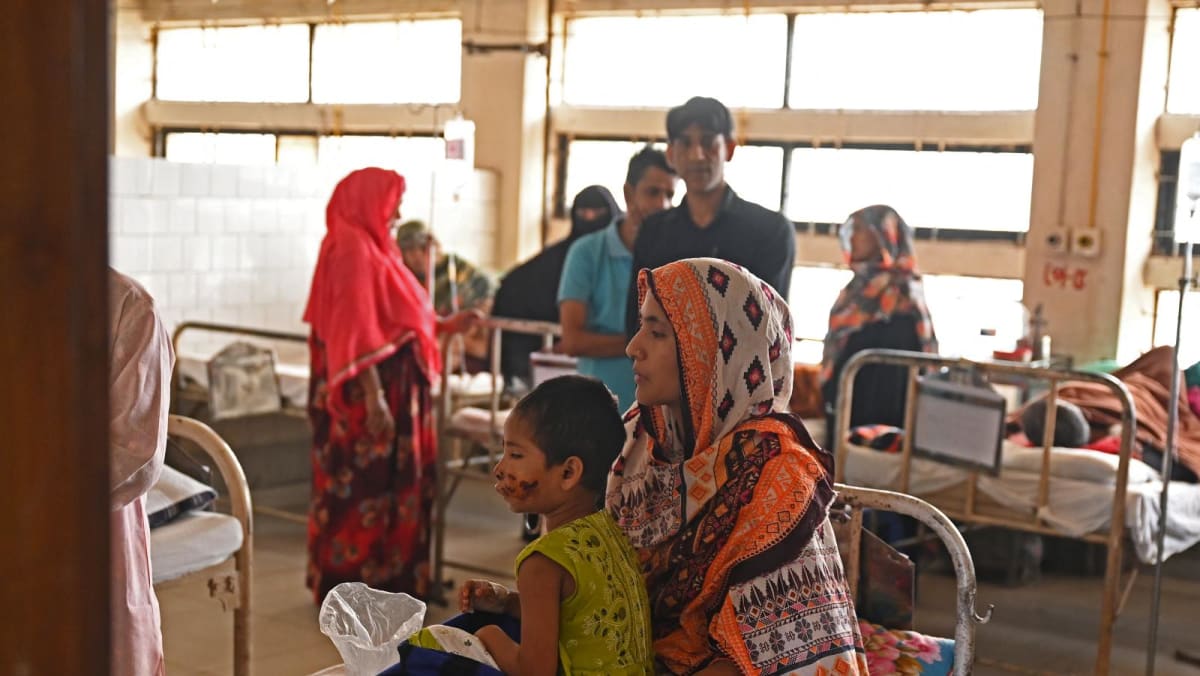Asia
China woos Bangladesh with healthcare as India ties sour

China Steps In: A New Era of Healthcare Cooperation with Bangladesh
China has announced its readiness to establish specialized hospitals exclusively for Bangladeshi patients, marking a significant shift in regional healthcare dynamics. This move comes in the wake of strained relations between Bangladesh and India, formerly the primary destination for Bangladeshi medical travelers. The announcement was made by Yao Wen, China’s Ambassador to Dhaka, who revealed that three hospitals have been designated to cater to Bangladeshi patients. Ambassador Yao emphasized China’s commitment to enhancing medical service mechanisms, including simplifying visa procedures to facilitate easier access for patients. This initiative is part of a broader effort to strengthen ties between China and Bangladesh’s interim government, which came to power following the ousting of former Prime Minister Sheikh Hasina in August 2023.
A Shift in Regional Healthcare Dynamics
For years, India has been the go-to destination for Bangladeshis seeking medical care. According to estimates by The Business Standard, a prominent Dhaka-based daily, over two million Bangladeshis visited India annually for medical purposes before the political landscape shifted. However, the relationship between New Delhi and Dhaka has cooled significantly since Sheikh Hasina’s removal. Hasina, once a close ally of India, was toppled in a student-led revolution, leading to a chill in diplomatic relations. Many Bangladeshis now report difficulties in obtaining Indian visas, further complicating access to medical care in India. This shift has created an opportunity for China to step in and fill the gap, offering a new avenue for Bangladeshis in need of healthcare services.
China’s Growing Influence in South Asia
China’s move to establish dedicated hospitals for Bangladeshi patients is not isolated but part of a larger strategy to deepen cooperation with Bangladesh’s interim government. Ambassador Yao highlighted that healthcare is just one aspect of the expanded collaboration between the two nations. Since August 13, Chinese companies have signed investment agreements worth approximately $230 million with Bangladeshi partners, solidifying China’s position as the largest investor in Bangladesh. This economic engagement is complemented by efforts to strengthen people-to-people ties, with the first batch of Bangladeshi patients expected to arrive in China by March. China’s approach reflects its broader ambition to expand its influence in South Asia, a region where it competes with India for dominance. Despite recent efforts to ease tensions, the rivalry between the world’s two most populous nations remains a critical factor in shaping regional dynamics.
The Human Impact: Patients and Politics
The shift in healthcare options for Bangladeshis comes amid a tense political backdrop. Sheikh Hasina, who ruled Bangladesh for 15 years, remains in self-imposed exile in India. She fled Dhaka by helicopter as protesters stormed her palace, marking the end of her autocratic rule. Hasina has defied an arrest warrant issued by the interim government in Dhaka, where she faces charges of crimes against humanity. Her presence in India has further strained relations between New Delhi and Dhaka, as Bangladesh accuses India of providing refuge to a fugitive. Meanwhile, ordinary Bangladeshis are caught in the middle, facing challenges in accessing medical care as the political situation continues to unravel. China’s offer of dedicated hospitals provides a glimmer of hope for those seeking treatment, but it also raises questions about the long-term implications of Dependence on Chinese healthcare.
The Broader Implications: Regional Politics and Economic Ties
China’s initiative to establish dedicated hospitals for Bangladeshi patients is more than a humanitarian gesture; it is a strategic move to strengthen its foothold in South Asia. By positioning itself as a reliable partner for Bangladesh, China aims to counterbalance India’s influence in the region. The $230 million in investments signed since August underscores China’s economic clout and its ability to leverage financial resources to build relationships. At the same time, the interim government in Bangladesh sees China as a crucial partner in navigating the post-Hasina era. The collaboration on healthcare is emblematic of a broader alignment of interests, with both nations seeking to deepen economic and political ties. As China’s influence grows, it will be important to monitor how this affects the balance of power in South Asia and the future of Bangladesh-India relations.
Looking Ahead: Opportunities and Challenges
The establishment of dedicated hospitals for Bangladeshi patients in China represents a significant turning point in regional healthcare and diplomacy. While this initiative offers new opportunities for Bangladeshis seeking medical care, it also raises important questions about sustainability, accessibility, and the potential for over-reliance on Chinese services. For China, the move underscores its commitment to expanding its influence in South Asia, but it also brings challenges, including the need to ensure high-quality care and manage the logistical complexities of cross-border healthcare. As the first patients prepare to travel to China, the success of this program will depend on both the effectiveness of the medical services provided and the strength of the diplomatic ties between the two nations. The road ahead is fraught with challenges, but it also holds the promise of greater cooperation and mutual benefit.











